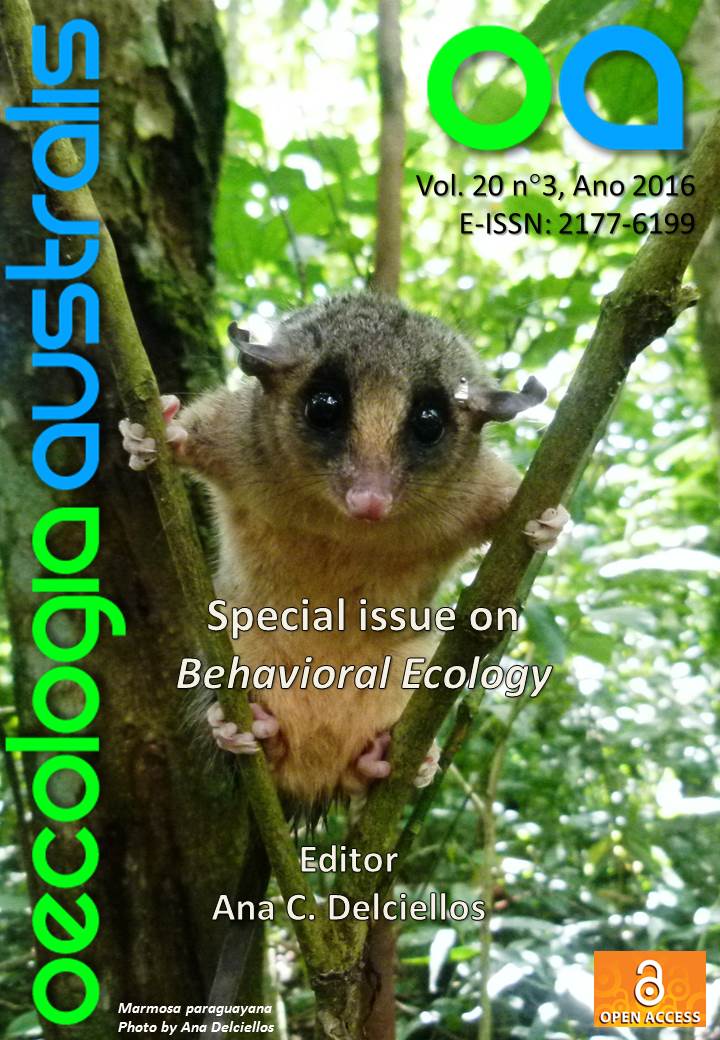WHEN THE FLEDGLINGS RED-FOOTED BOOBIES (Sula sula) ACQUIRE FLIGHT CAPACITY
DOI:
https://doi.org/10.4257/oeco.2016.2003.05Keywords:
behavioral activities, development, emancipation, feeding, flightAbstract
The high cost of parental care may sometimes result in a conflict of interest between parents and offspring. To achieve the benefits of producing viable offspring and/or additional breeding opportunities, tropical seabirds must be able to afford the costs of searching for food in an oligotrophic environment. In order to verify the behavioral variation of Red-footed boobies (Sula sula) during the late phase of its development, over a 12 week period was recorded the behavior of 15 fledglings. The behavioral records were made with the instantaneous focal animal method in windows of 15 minutes and records every minute. Records of feeding, agonism and frigates attacks were recorded ad libitum during the days of observation. No differences in the frequency of activities displayed by offspring at advanced stages of fledgling development, or in the frequency of parental presence during the transitional period to full capacity for flight were detected. On the other hand, it was observed that fledglings synchronized their presence at the nest with that of the adults even after achieving full flight capacity and that during periods of absence neighboring offspring were likely to occupy vacant nests. We speculate that with this behavior they apparently are trying to acquire, opportunistically, extra food resources from other, not directly related adults. However, we did not observe any fledgling being fed by a non-related adult. We also recorded the expression of aggressive behaviors of a fledgling towards a neighboring fledgling on the nest. These observations suggest the presence of a behavioral strategy in this species that is motivated by the continuously high demand for sustenance as the frequency of parental provisioning declines during the more advanced stages of offspring development. Although we did not verify changes in the fledglings' behavioral repertoire, the occurrence of agonistic behavior among them suggests that they must try alternative strategies to get food while not quite ready to live independently.
Downloads
Downloads
Additional Files
- Carta de apresentação (Português (Brasil))
- camiladebarros, Fig 1.tif (Português (Brasil))
- camiladebarros, Fig 2.tiff (Português (Brasil))
- camiladebarros, Fig 3.tif (Português (Brasil))
- camiladebarros, Figure 1 (final).jpg (Português (Brasil))
- camiladebarros, Figure 2 (final).tiff (Português (Brasil))
- camiladebarros, Figure 3 (final).tiff (Português (Brasil))


